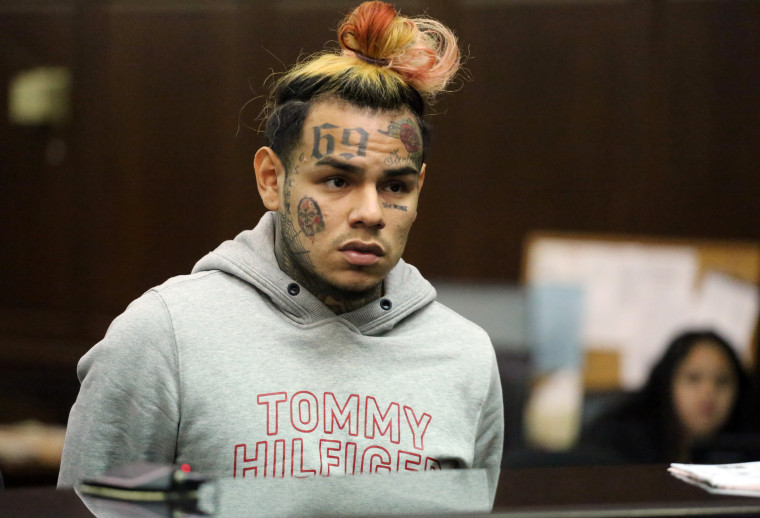A lawyer for Tekashi 6ix9ine asked a federal judge Thursday to expand the rapper's house arrest to his backyard so he can record music videos there, court documents show.
The rapper, whose real name is Daniel Hernandez, 23, was released from prison April 2 after his defense team argued that chronic asthma made him vulnerable to COVID-19, the disease associated with the coronavirus.
Full coverage of the coronavirus outbreak
Hernandez was released with four months left of a two-year sentence for racketeering and firearms and drug trafficking.
In the letter, filed Thursday in U.S. District Court in Manhattan, lawyer Lance Lazzaro asked that Hernandez be allowed to spend two hours once a week in his backyard to record the videos. The location of his home has not been disclosed, and its address is blacked out in the filing.
The document adds that Hernandez' probation officer is aware of the request and has no objection.
Hernandez pleaded guilty last year after testifying against high-level members of Nine Trey Gangsta Bloods, a gang founded by inmates at New York City's Rikers Island jail. Hernandez said his music provided the group with financial support "so they could buy guns and stuff like that."
Download the NBC News app for full coverage and alerts about the coronavirus outbreak
The testimony led to the racketeering convictions of Anthony "Harv" Ellison and Aljermiah "Nuke" Mack.
U.S. District Judge Paul A. Engelmayer has said Hernandez's asthma presented an "extraordinary and compelling" reason to justify his "compassionate" release. And the judge said the rapper's guilty plea and public cooperation with authorities signaled that he posed no danger to his neighbors.
